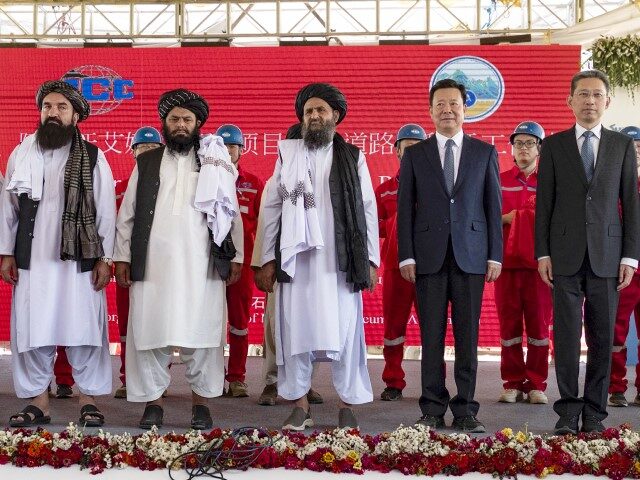Zhao Xing, China’s ambassador to Afghanistan, said on Thursday that Beijing will soon offer “zero-tariff” trade to the Taliban regime.
China still has not formally recognized the Taliban as the legitimate rulers of Afghanistan, and neither has any other country on Earth, but China covets Afghanistan’s mineral resources, and the Taliban desperately need foreign investment money.
“Selling Afghanistan’s lithium, copper and iron deposits to the world’s biggest commodities buyer would help the Taliban prop up their ailing economy, which the United Nations says has ‘basically collapsed,’ and provide a much needed revenue stream as the country’s overseas central bank reserves remain frozen,” Reuters observed on Friday.
Chinese Foreign Ministry spokesman Lin Jian confirmed on Friday that Afghanistan will be granted duty-free export privileges to “promote bilateral trade cooperation and achieve mutual benefits.”
Taliban Deputy Prime Minister Maulavi Mohammed Abdul Kabir said he also discussed “plans to inaugurate a new economic passageway with Afghanistan via Tajikistan” during a meeting with Ambassador Zhao.
This passageway, which uses a strip of land known as Wakhan in Tajikistan that connects Afghanistan with China’s Xinjiang province, would be vital to fulfilling the Taliban’s ambition of joining the China-Pakistan Economic Corridor (CPEC).
Afghanistan’s annual exports to China currently amount to a paltry $64 million, and about 90 percent of that is shelled pine nuts. Afghanistan’s huge mineral deposits remain largely untapped, and will stay that way unless the Taliban can bring in big-ticket foreign investors to help it with mining operations.
To that end, Ambassador Zhao has been meeting with Taliban oil, mining, and trade officials, as documented in the stream of photos he posts on social media. The first major Chinese project to get off the ground will probably be a huge copper mine developed by the Metallurgical Corporation of China.
The Mes Aynak copper mine could hold up to 4.4 billion metric tons of the metal, which is useful in electric vehicle (EV) batteries and semiconductors. China Metallurgical paid $3 billion for a 30-year concession on the mine in 2008, but the project stalled out due to the security problems (the Taliban were conducting constant terrorist attacks against the U.S.-supported Afghan government until the Islamist extremists seized power three years ago) and the presence of an important archaeological site near the proposed mine.
China and the Taliban held a ribbon-cutting ceremony for the copper mine in July that signaled the project was returning to life, although some analysts believe Beijing is still reluctant to sink big money into Afghanistan while civil unrest and terrorism from ISIS are still brewing.
The Taliban have yet to deliver the level of security China desires before it makes big investments, but the Chinese also tend to believe that big investments and massive projects improve political stability. The Chinese want that Mes Aynak copper badly enough to roll the dice on their theory of industry leading to stability, and the Taliban badly need the income it could gain by exporting the copper.

COMMENTS
Please let us know if you're having issues with commenting.